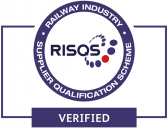What we think, do and admire…
This is where we share our thoughts on everything that’s interesting at Kilfrost.
Optimise the Efficiency of Your Ground Source Heat Pump System
By Kilfrost
March 4th, 2025
Share this story

With benefits such as reducing energy costs, ensuring long-term heating system durability and improving your carbon footprint, ground source heat pumps (GSHPs) are an excellent investment when it comes to heating and cooling your business.
However, there are some steps that need to be taken to fully realise the potential of ground source heat pumps, such as choosing the right heat transfer fluid and limiting corrosion in your geothermal heating system.
Step 1: Ensuring a clean system on installation
If a system is being installed, it should be immediately ready to use, right?
Wrong!
Failing to clean your ground source heating system before adding your heat transfer fluids (HTFs) can be a colossal mistake, resulting in the lifespan of the system being reduced, as well as the GSHP efficiency being compromised.
By taking the time to clean your system properly from the start, you will have a system that you can rely on for years to come.
But what if you already have a ground source heat pump system which wasn’t cleaned on installation?
If this is the case, there can be a risk of corrosion or biofouling developing in your GSHP but with regular monitoring and timely action, any future concerns can be minimised.
Step 2: Regular monitoring and maintenance
Even after the initial installation, systems and HTFs should be regularly checked, and any required maintenance should be undertaken to ensure system efficiency. Wear and tear can still occur, even if you’ve implemented all of the preventative measures early on, and the importance of regular fluid checks, including any essential cleaning, of your geothermal heating system should not be overlooked.
After all, ensuring GSHP efficiency is the best possible way to receive a return on your investment.
Step 3: Choosing the right HTF
The heat transfer fluid you select for your GSHP is just as crucial to the performance and the longevity of your geothermal heating system as regular maintenance. Choosing the right fluids will not only help to ensure HTFs flow through the underground system efficiently, but will, in turn, help to slow the corrosion process, minimising damage and saving you the cost of expensive and frequent GSHP repairs.
At Kilfrost, we have developed a range of specialty HTFs which have been designed to ensure ground source heat pump efficiency. Our GEO products offer increased performance and safety of your closed loop ground and water source heat pumps.
Thanks to benefits like lower pressure drops, reduced energy use in the pumping process and overall improved efficiency, systems using Kilfrost GEO will see an immediate improvement in GSHP performance.
Proven to outperform both Mono Ethylene Glycol (MEG) and ethanol-based fluids, Kilfrost GEO and Kilfrost GEOPLUS - a HTF fluid confirmed by US NSF standard as safe for incidental food and beverage contact - are low viscosity and non-toxic. This maintains their reputation of being reliable products for use in your GSHP system. The range has also been formulated with bio-derived base fluids listed as GRAS (Generally Recognised as Safe) by the FDA and contains proven corrosion inhibitors: this means that you can rest assured that your system is safe, efficient and resilient.
Key Features of the Kilfrost GEO range
• Non-toxic heat transfer fluid
• Certified as NSF incidental food contact safe*
• Outperforms MEG, MPG, Bio-PDO and ethanol-based heat transfer fluids
• Delivers lower system pressure drop and lower pumping costs
• Superior environmental profile
• Tested to and exceeds ASTM D1384-05 corrosion test standard at 88°C
• Free from nitrates, nitrites, borates and heavy metals
• Optimum operating temperature range -40°C to +40°C
* An additional benefit of the Kilfrost GEOPLUS heat transfer fluid.
Read our handy blog on ‘why cleaning matters’ for more information on how you can keep your GSHP efficient, here.
Discover how the Kilfrost GEO and GEOPLUS range can help your ground source heating system to perform at its best for longer, here.


